Bas Geerdink
The state of MLOps - machine learning in production at enterprise scale
#1about 4 minutes
The challenge of moving machine learning to production
While notebooks are great for experimentation, the actual machine learning code is only a small part of a much larger production system.
#2about 7 minutes
Adopting an MLOps mindset and culture
MLOps extends DevOps principles by integrating data scientists, developers, and operations into a single team with shared responsibility for the entire application lifecycle.
#3about 3 minutes
Best practices for managing production models
Treat models as versioned artifacts, continuously monitor them for data drift, and track business metrics to ensure ongoing accuracy and value.
#4about 8 minutes
A reference architecture for MLOps pipelines
A common MLOps pattern involves a batch pipeline for model training and a real-time pipeline for model scoring, a structure used by major cloud providers.
#5about 3 minutes
Navigating the complex MLOps tooling landscape
Choosing the right tools requires making foundational decisions between buying versus building solutions and using AutoML versus custom-built models.
#6about 7 minutes
Exploring different patterns for model serving
Models can be served in various ways, from monolithic application deployments to decoupled microservices or embedded directly within streaming applications for low latency.
#7about 1 minute
Containerizing ML applications for consistency
Using containers like Docker and orchestration platforms like Kubernetes provides a consistent, portable, and scalable environment for deploying machine learning applications.
#8about 3 minutes
The role and benefits of a feature store
A feature store is a specialized database that centralizes feature management, serving data efficiently for both batch model training and real-time model scoring.
#9about 2 minutes
Orchestrating MLOps workflows for reliability
Workflow orchestration tools like Kubeflow and Airflow are essential for scheduling, managing, and monitoring the batch jobs involved in training models and engineering features.
#10about 8 minutes
Further resources and Q&A on MLOps careers
A review of recommended books and courses for learning MLOps, followed by career advice on getting started in the field and the pros and cons of freelancing.
Related jobs
Jobs that call for the skills explored in this talk.
Featured Partners
Related Videos
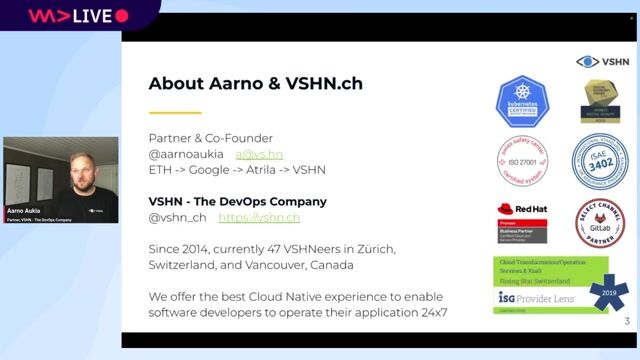 34:21
34:21DevOps for AI: running LLMs in production with Kubernetes and KubeFlow
Aarno Aukia
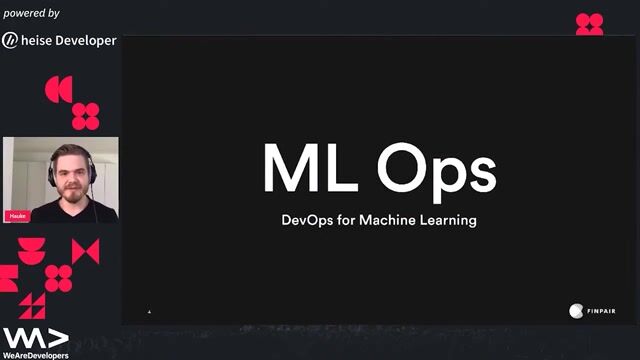 44:40
44:40DevOps for Machine Learning
Hauke Brammer
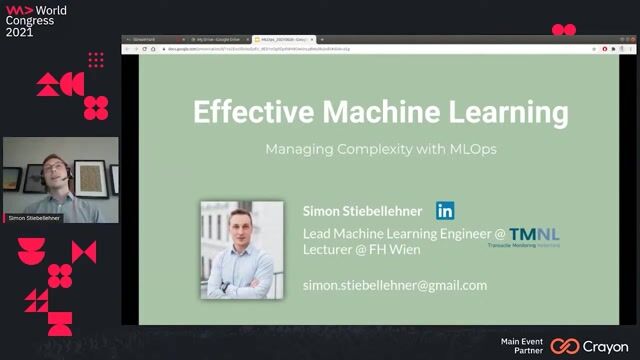 45:45
45:45Effective Machine Learning - Managing Complexity with MLOps
Simon Stiebellehner
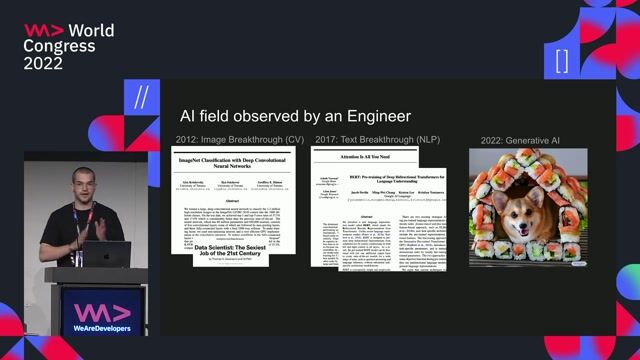 29:24
29:24MLOps - What’s the deal behind it?
Nico Axtmann
 41:45
41:45From Traction to Production: Maturing your LLMOps step by step
Maxim Salnikov
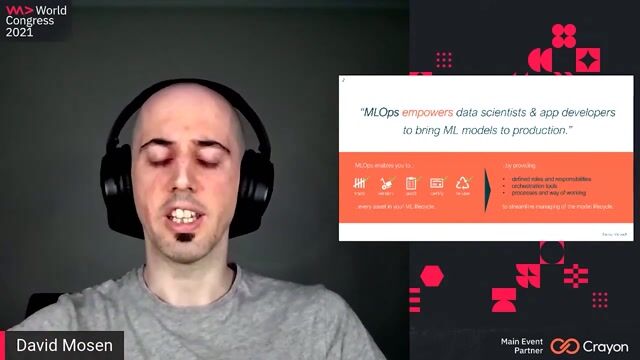 37:24
37:24Deployed ML models need your feedback too
David Mosen
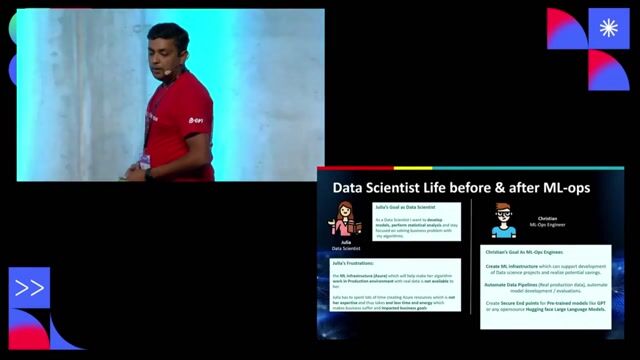 19:27
19:27How E.On productionizes its AI model & Implementation of Secure Generative AI.
Kapil Gupta
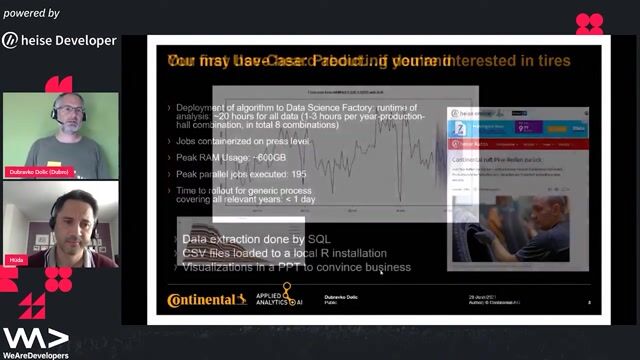 43:47
43:47Industrializing your Data Science capabilities
Dubravko Dolic & Hüdaverdi Cakir
From learning to earning
Jobs that call for the skills explored in this talk.
Machine Learning (IA/ML) + DevOps (MLOps)
Alten
Municipality of Madrid, Spain
Remote
Java
DevOps
Python
Kubernetes
+3
ML/DevOps Engineer at dynamic AI/ Computer Vision company
Nomitri
Berlin, Germany
C++
Bash
Azure
DevOps
Python
+12
Cloud Developer - MLOps (H/F)
Safran Groupe
Canton of Montpellier-3, France
ELK
DevOps
Docker
PyTorch
Grafana
+9
MLOps Engineer for Language Technologies
Barcelona Supercomputing Center
Barcelona, Spain
Bash
Azure
DevOps
Python
Gitlab
+6







